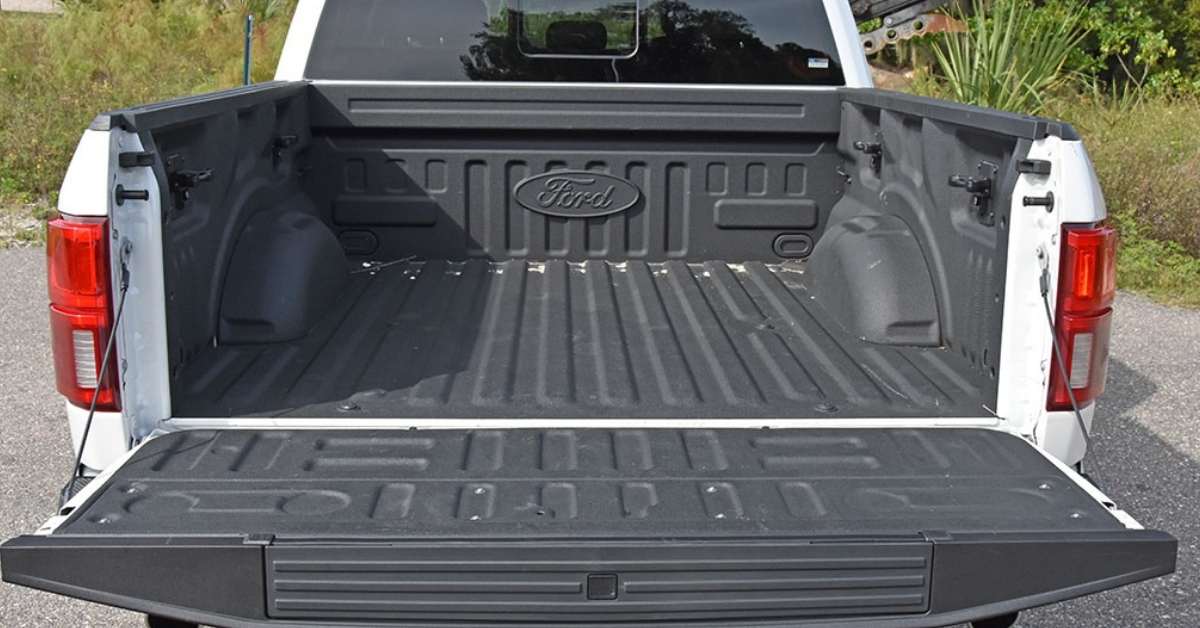When we think about pickup trucks, we often focus on engine power or towing capacity, but understanding truck bed weight is equally crucial for safe and effective vehicle operation. This guide will walk you through everything you need about Ford truck bed weights, from basic measurements to practical applications.
Before diving into specific numbers, it’s important to understand that truck bed weight isn’t just about the physical mass of the cargo box. Think of it as part of a carefully balanced system where every pound matters. Just as a balance beam needs proper weight distribution to stay level, a truck needs proper weight distribution to perform optimally.
The weight of a Ford truck bed depends on factors such as its design, model, and the material used in its construction. Traditionally, steel truck beds are heavier due to their durability, while modern aluminum truck beds are lighter and offer better flexibility.

How Much Does a Ford Truck Bed Weigh?
The weight of a Ford truck bed typically falls between 299 to 499 pounds, depending on the model and bed size. Below is a breakdown of the weights for different Ford truck variants:
- Ford F-150:
- 5.5-footbed: 219 to 299 pounds
- 8-foot bed: 403 to 404 pounds
- Ford F-250:
- 6.7-footbed: 470 to 474 pounds
- 8-foot bed: 405 to 598 pounds
- Ford F-350:
- 8-foot bed: 510 to 589 pounds
The truck’s owner’s manual specifies the payload and weight limits. Consulting a dealer or using a weight calculation formula can help determine the exact range for a specific model.
Average Weight of a Ford Truck Bed
The weight of a Ford truck bed varies based on the model year, design, and dimensions. The general weight range is 299 to 499 pounds across different models.
- Older Ford F-250 models (pre-2017) typically have a 6.7-foot bed that weighs 470 to 474 pounds, whereas newer models weigh between 299 to 348 pounds due to lighter materials.
- A 6.5 to 6.7-foot SuperCab bed weighs 295 to 298 pounds in the 2WD version. The 4WD variant has a bed weight of 298 to 299 pounds.
- The Crew Cab variant of the F-250 has a smaller bed, ranging from 290 to 296 pounds.
- The Ford F-350’s 8-foot bed weighs between 510 and 580 pounds, depending on the trim level.
- The Ford F-450 Super Duty has 6.7-foot and 8-foot bed options, with weight limits depending on width and payload capacity.
Factors Affecting the Weight of a Ford Truck Bed
Several factors influence the overall weight of a Ford truck bed, including:
1. Truck Bed Size
The dimensions of a truck bed significantly impact its weight. Longer truck beds are heavier due to increased material usage.
- Super Duty trucks like the F-250 and F-350 typically have larger and heavier beds than the standard F-150.
- Regular cabs have smaller and lighter beds than SuperCab and Crew Cab variants.
- An 8-foot bed is naturally heavier than 5.5-foot and 6.7-foot options, with weight ranges spanning 405 to 598 pounds.
- The addition of a tailgate increases the total weight of the truck bed.
2. Truck Bed Design
The structural design of a Ford truck bed influences its weight. Beds designed for higher towing and payload capacity tend to be heavier.
- Some models have short beds integrated into the chassis, offering a lighter overall weight.
- Long-bed designs support greater cargo and towing loads, resulting in higher weight.
3. Manufacturing Material
The material composition of the truck bed significantly affects its weight.
- Traditional truck beds are made from steel, which is highly durable and resistant to harsh environmental conditions. However, steel is heavier, adding significant weight to the truck.
- Modern Ford truck beds use aluminum, making them lighter yet strong. Aluminum beds provide better flexibility, impact resistance, and protection against dents.
4. Overall Truck Weight & GVWR
The weight of the entire truck, including curb weight and GVWR (Gross Vehicle Weight Rating), can impact the weight of the truck bed.
- Heavy-duty trucks like the F-250, F-350, and F-450 have heavier beds due to reinforced structures designed for durability and hauling.
- Compact pickups typically feature lighter truck beds to balance the vehicle’s weight distribution and improve driving stability.
How to Calculate the Weight of a Ford Truck Bed
To accurately determine the weight of a Ford truck bed, you can use the following steps:
- Measure the truck bed’s dimensions (length and width) using a measuring tape.
- Multiply the length by the width to get the square footage of the bed.
- Determine the material weight per square foot based on whether the bed is steel or aluminum.
- Multiply the square footage by the material weight to estimate the total bed weight.
For example:
- A 5-foot bed with a 3-foot width has 15 square feet of area.
- A steel truck bed weighs approximately 30 pounds per square foot.
- Multiplying 15 × 30 gives a total weight of 450 pounds.
Refer to the truck’s manual or consult a Ford dealership for precise weight calculations.
Why Is It Important to Know the Weight of a Ford Truck Bed?
Understanding the weight of your truck bed is essential for vehicle performance, safety, and durability.
- Payload Capacity: Knowing the bed weight helps ensure safe cargo loading without exceeding the truck’s payload limit.
- Suspension Protection: Overloading a truck bed can strain and damage the suspension, leading to expensive repairs.
- Driving Stability: The right weight balance improves traction, especially on wet or snowy roads, enhancing vehicle control.
- Tire & Chassis Support: A well-balanced truck bed weight maintains optimal tire grip and stability, reducing wear and tear.
The weight of a Ford truck bed varies based on size, design, materials, and model type. While steel beds are heavier, aluminum beds offer a lightweight alternative with improved flexibility. Understanding these weight factors helps truck owners optimize cargo loading, improve vehicle performance, and ensure driving safety. Always refer to the owner’s manual or consult a professional for precise weight specifications of your truck bed.






Leave a Reply
View Comments